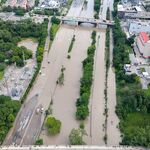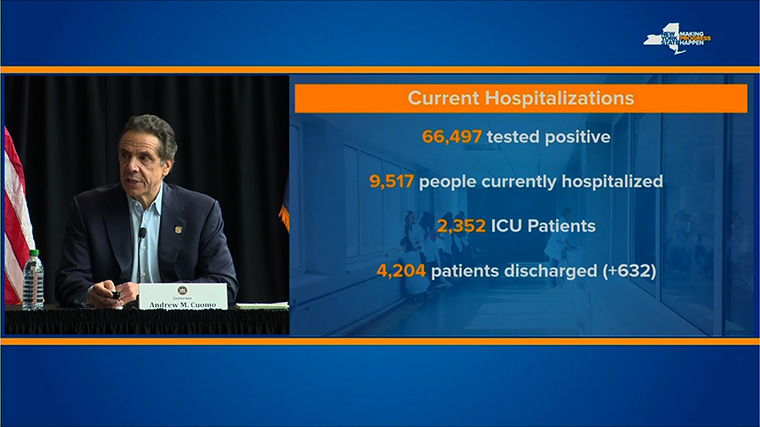Pennsylvania Gov. Tom Wolf on Tuesday quietly allowed gun shops to reopen, but only by appointment during limited hours if customers and employees comply with social distancing and other protective measures.
There is a lot of variation across the United States because a national stay-at-home order has not been issued, said Benjamin Clark, associate professor of planning, public policy and management at the University of Oregon.
“We end up with places making up the rules that are culturally or geographically specific,” Clark said. “This is why we see so much variation, and potential risk.”
Europe’s rules differ by country
In Europe, the current epicenter of the pandemic, Italy has the most stringent rules, with only essential businesses such as food shops and pharmacies remaining open. The manufacturing sector was ordered shut down on Thursday, though factories that make needed products like medical supplies will continue to operate after making conditions safer for employees.
Britain, which was initially reluctant to shut down business, has issued orders to close nonessential operations. Restaurants and eateries must be shut, but Britons can still get fish and chips and other meals, as long as they’re carry-out.
In France, shops specializing in pastry, wine and cheese have been declared essential businesses.
In a nod to Israel’s vibrant religious life, people can gather for outdoor prayers ― with a maximum of 10 worshipers standing 2 metres (2 yards) apart. Demonstrations ― also allowed ― have occurred outside parliament and the Supreme Court, with participants maintaining social distance.
“In times of uncertainty, institutions and practices that are central to the cultural identities can become really important touchstones ― material markers of certainty, comfort, and mechanisms to persist,” said Aimee Huff, marketing professor at Oregon State University, specializing in consumer culture.
In China, authorities closed most businesses and public facilities beginning in late January but kept open hospitals, supermarkets and pharmacies. Truck drivers delivering food, disinfectant and medical supplies to locked-down cities were hailed as heroes. Now, the ruling Communist Party is relaxing restrictions to revive the economy after declaring victory over the outbreak.
For most people, the new coronavirus causes mild or moderate symptoms, such as fever and cough. For some, especially older adults and people with existing conditions, it can cause more severe illness, including pneumonia, and death.
In the United States, lobbyists have been trying to influence what gets on lists of essential services, so their clients’ businesses can remain open.
“They were absolutely earning their pay″ in Connecticut, said Reiss, the governor’s spokesman. He noted lobbyists for manufacturers and the golf course industry were particularly active.
Despite their efforts, golf wasn’t deemed essential in Connecticut. But Arizona Gov. Doug Ducey included golf courses on his list. Officials in Phoenix encouraged the city’s 1.7 million residents to “get outside, get exercise and practice responsible social distancing” in golf courses, parks and trails.
Mayors of five other Arizona cities pushed back, telling Ducey that including golf courses and payday lenders was taking the definition of essential too far.
Construction essential in California
In California, construction executives and others lobbied state officials to get construction exempted from the stay-at-home mandate, the Sacramento Bee reported. State health officials responded by including all construction as essential.
If construction in America’s most populous state stalls ― as it it did during the Great Recession ― it would be difficult to restart, said Erika Bjork of the Sacramento Metropolitan Chamber of Commerce, which advocated for the industry.
“We need to keep this engine humming, so when we come out of this we have housing,” Bjork said.
Like Britain, some U.S. states allowed liquor stores to remain open, including New Mexico, which routinely ranks first in alcohol-related deaths per capita.
State health officials were concerned that shutting them down would result in people with alcoholism seeking emergency medical attention, taking resources away from the coronavirus, said Tripp Stelnicki, a spokesman for New Mexico Gov. Michelle Lujan Grisham.
In New Hampshire, Gov. Chris Sununu said flower shops are among the essentials.
Asked why, spokesman Ben Vihstadt said they provide essential services for funeral homes.







